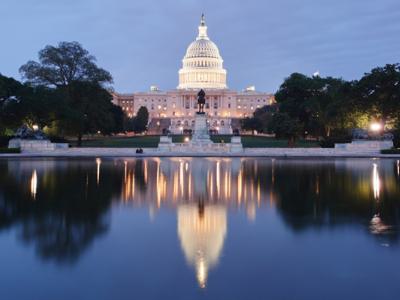One year ago today, Jan 6, 2021, America was heavily divided. Roughly, half the country believed that their candidate had just won the presidency and the other half believed that the integrity of the 2020 election had been compromised and the election results in Georgia, Pennsylvania, Arizona, Wisconsin, Michigan, and other places were suspect. Thousands descended on Washington D.C. to demand a halt in the certification of the election results, so allegations of election fraud could be more thoroughly explored. As Congress began to debate whether to certify the 2020 Electoral College vote, the gathered mob outside swept the Capitol Police aside and stormed the U.S. Capitol building. One of the protestors was shot by an officer defending the Speaker of the House’s offices and one Capitol Police officer had a stroke and died after fighting the protestors.
The nation is still divided on what happened that day and over the days that led up to that day. Some on the Republican side still question the integrity of the vote and believe election fraud occurred. Some on the Democratic side believe that the actions of the mob that day were part of a grand sinister conspiracy to stage a coup and invalidate the election results by force.
Speaker Nancy Pelosi (D-Calif) has empaneled a partisan select committee to investigate Jan. 6. The select committee of congressional Democrats and anti-Trump Republicans handpicked by Pelosi has been investigating members of the Trump Administration and campaign and even some Republican members of Congress.
In recent weeks, the House Jan. 6 Select Committee has even signaled that it is considering criminal referrals to the U.S. Department of Justice and claims that former President Donald J. Trump (R) and/or members of his inner circle violated the law in connection with the riot.
Most Republicans, including Alabama’s Congressman Mo Brooks (R-AL05), who is allegedly being investigated by the Commission for his role in the events that day, dismiss the Jan. 6 Commission as “a partisan witch hunt.”
The Select Committee is doing its work in secret, behind closed doors, without public scrutiny. Many witnesses called by the Committee have refused to testify, claiming that their rights to a fair and impartial hearing are being violated by the Committee which has been derisively compared to the “star chamber court” used by English monarchs to subvert the court system and punish their political enemies in the 16th and 17th Centuries.
Democrats have become frustrated with the Department of Justice for its slow pace and apparent hesitancy to indict people in a wider conspiracy.
On Wednesday, U.S. Attorney General Merrick Garland defended the DOJ’s efforts to prosecute those involved in the Jan. 6 riot and suggested that even people who never set foot in the Capitol could also be charged.
“The actions we have taken thus far will not be our last,” Garland said in a statement. “The Justice Department remains committed to holding all January 6 perpetrators, at any level, accountable under law, whether they were present that day or were otherwise criminally responsible for the assault on our democracy. We will follow the facts wherever they lead.
“We build investigations by laying a foundation. We resolve more straightforward cases first because they provide the evidentiary foundation for more complex cases. Investigating the more overt crimes generates linkages to less overt ones. Overt actors and the evidence they provide can lead us to others who may also have been involved and that evidence can serve as a foundation for further investigative leads and techniques.”
Pelosi and the Democrats are prepping for a big day of events marking the one-year anniversary. Those events will mostly be attended by Democrats.
Rep. Marjorie Taylor Greene (R-Ga) and Matt Gaetz (R-Fla), will be on Capitol Hill on Thursday to hold what they described as “a Republican response” to the Democrats’ Jan. 6 anniversary event.
Some Republicans maintain that the actions of the mob were the actions of the mob alone and that the bigger issue is improving the integrity of future elections by requiring that voters vote at the polls, preferably on election day, ending ballot harvesting and other questionable practices such as mail out ballots that they claim make it easy for fraud to occur.
Senate Majority Leader Chuck Schumer (D-N.Y.) said that the Senate will soon consider voting rights legislation that would federalize elections and nullify state photo ID laws and bans on ballot harvesting. They claim that this legislation is needed to protect voting rights.
Republicans claim that this legislation, which has already passed the House, undermines state election integrity laws and makes it easier for unscrupulous people to commit election fraud.
(Original reporting by the Hill and the International Business Times contributed to this report.)
To connect with the author of this story, or to comment, email brandon.moseley@1819News.com.










